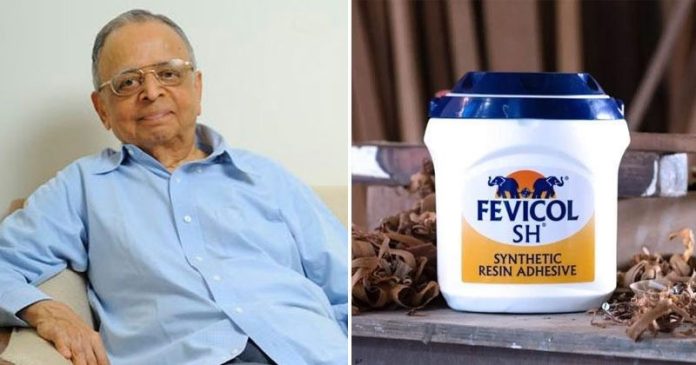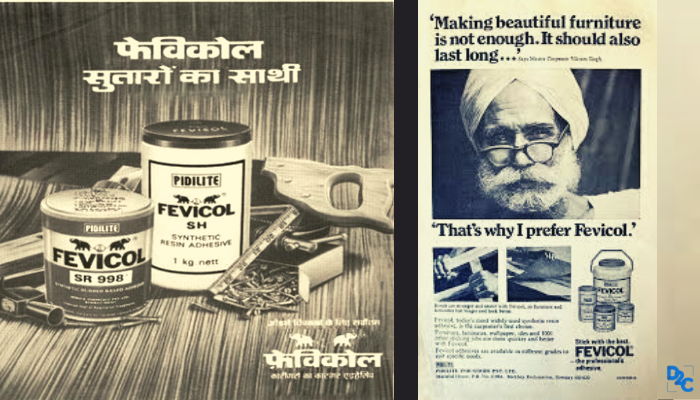
Breaking Barriers And Building Empires: The Story Of “Pidilite” Founder Balvantray Parekh
Date:

Share post:
History of the Founder
Balvantray Parekh was born in a Jain household in the Bhavnagar district of Gujarat. His grandfather was a magistrate, and wanting to follow the same path, he enrolled in Government Law College Mumbai. However, this was during the peak of India’s Independence Movement, and inspired by Mahatma Gandhi, he dropped out of college to join Quit India Movement. His parents disagreed with this decision, and after joining the movement and working on social causes for a year, he resumed and completed his studies. He also passed the bar exam but never actually practiced law. The reason for this was clear: he did not want to participate in the profession due to its demand to tell innumerable lies.

Finding a Career
Balvant was a businessman in heart and wanted to do something related to it, but he wanted to gain knowledge and experience first. During this time, he worked in a printing and dyeing company and later even in a wood trader’s office as a peon. However, due to a lack of financial resources, he could not afford living arrangements and moved to a warehouse owned by his friend.
Later, Balvant made a good relationship with a dye trader who invited him to invest in importing paper-based dye, supari, and cycle from the west. Unfortunately, the association didn’t last as Balvant felt he needed equal profits or shares.
After this, Balvant joined Fedco, a German firm in India. The firm would represent the interests of a German company named Hoechst in India and its market. Balvant became a partner in Fedco for fifty percent of the profit made by the company. Later Balvant met with the Managing Director of the company, who, impressed by his knowledge of the industry, offered him to be trained in one of the company’s factories in Germany.

The Making of Pidilite
Soon the company’s Managing Director died, making Balvant the only representative of the firm. Due to this, his stake at the company grew, but after the death of the Managing Director, Hoechst now wanted to separate from Fedco and operate individually. So Balvant left the firm.
He started his own company named Parekh Dyechem Industries with his brother. Eventually, they changed the name from Parekh Dyechem Industries to P.D Lite Industries, giving the final result Pidilite Industries.
Dominating the Indian Market
While working as a peon for a wood trader, Balvant had learned about the inferior quality of the adhesive used by carpenters, which was challenging to use and would only last for a while. Due to this, even the products made by skilled carpenters would only last for a while. The other thing which bugged Indian carpenters was that the adhesive was made from animal parts. So seeing the business opportunity, Balvant saw the perfect opportunity to release ‘Fevicol,’ his vegetarian glue made of synthetic resin. Balvant also made sure to target the product to carpenters rather than the consumer, as the consumer didn’t care about the glue but only the final product.
Soon competition would try to create similar products copying Fevicol.
Changing Business Strategies
The company wanted to maintain its popularity in the adhesive industry and decided to expand further. For this, they had to change their business strategy from an industrial product to becoming a retail consumer product. They did this by entering the ‘Art and Craft’ market and producing small 30gm tubes of glue. Later they started production of more products in the industry like Rangeela, Fevistic, and Fevicryl. By now, Pidilite has gained popularity among students and artists.
Unforgettable Advertisements
One of the reasons the brand gained popularity throughout the country was its humorous and unforgettable advertisements. Not only people remembered the brand but the taglines too. The popularity grew so much that it was even referenced in the Bollywood movie ‘Dabbang 2’ in the song ‘Fevicol se.’

Market Share
The company has been dominating both the Indian and Asian Adhesive markets for years now. It reportedly made revenue of INR 9,957 crores in FY 22 and has one of the strongest shares in the Indian Stock Market.
The company plans to achieve between 15 to 16 percent of the growth in the coming years. This is because they are planning to launch more products in different categories. The management believes that the revenue will increase by 50 percent after this launch. They are also building 11 more factories all over India to meet the increased market demand.
